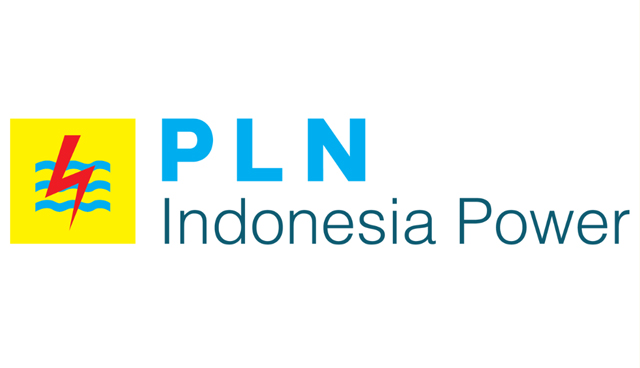NUSA DUA- The Special Task Force for Upstream Oil and Gas Business Activities (SKK Migas) has successfully carried out a grand event in the upstream oil and gas sector, namely the 3rd International Oil and Gas Convention which took place at the Bali Nusa Dua Convention Center (BNDCC) from 23-25 November 2022. This activity, which was attended by more than 2,000 people in person and more than 200 thousand unique visitors online, resulted in a number of inputs or recommendations to the Indonesian government so that the upstream oil and gas industry would be more attractive and attractive to investors.
“We get input and insight from speakers, both from the Government, PSC Contractors representatives, organizations in the global energy sector and others, including from the Indonesian National Police. In essence, all stakeholders are collaborating to support national energy security through a target of 1 million BOPD and 12 BSCF,” said Dwi Soetjipto, Chairman of SKK Migas, while closing the 3rd International Oil and Gas Convention 2022, Friday, November 25
Dwi said SKK Migas will hold the fourth IOG event on September 20-22, 2023. It takes a lot of hard work and extraordinary support so that next year’s event can reach this year’s scale of success. He conveyed his deepest appreciation to sponsors, partners, speakers, delegates and all participants. “This convention would not be as successful without your tireless contributions and efforts. I also appreciate the hard work of all the Steering Committee and Organizers to make this event a success and useful,” he said at the closing of event.
Dwi revealed, from this year’s IOG convention there were at least seven recommendations from upstream oil and gas industry players to the Government of Indonesia. First, with the goal of energy transition and energy security, we need to act with a sense of urgency and timing is of the essence. Second, to open up the development of marginal fields, PSC Contractors need flexibility in the PSC scheme and the right incentives.
Third, gas development, including CCS and CCUS, is one of the main immediate solutions for decarbonization efforts.
Fourth, to enable large-scale and commercial development of CCS and CCUS, oil and gas companies need government support through special incentives, relevant policies and regulations, as well as broader collaboration and funding.
Fifth, if the government wants to support the development of gas projects, the industry must be able to seize opportunities as long as the gas market is high.
Sixth, the elimination of ring fence commitments and recovery of exploration costs will increase the upstream marketing potential.
“Seventh, SKK Migas and other government agencies must help accelerate licensing through a one-door service policy and simplification of procedures,” said Dwi.
According to Dwi, upstream oil and gas industry players need to pay attention to several messages from a number of speakers. From the Coordinating Minister for Maritime Affairs and Investment Mr. Luhut Binsar Panjaitan, upstream oil and gas business activities need to make reasonable adjustments to Climate Change Adaptation Operations (CCAO), for example through energy management and CCS/CCUS.
From the Minister of Finance Sri Mulyani Indrawati, the Government’s main focus for the upstream oil and gas industry is to prepare fiscal incentives to achieve production targets and facilitate Indonesian oil and gas based on Climate Change Adapted Operations (CCAO). Minister of Finance The Minister acknowledged that the right tools (such as fiscal policies, tax instruments, and customs policies) are very important to help upstream oil and gas industry players ensure energy security while realizing commitment to the energy transition.
A similar message also came from the Coordinating Minister for the Economy Airlangga Hartarto who stated that Indonesia must apply low-carbon technology and green financing for capacity building. Government regulations must be effective and conducive to promoting sustainable investment. “Pak Airlangga also expects SKK Migas to lead collaboration and synergize stakeholders to open up the development of megaprojects such as Masela and IDD,” said Dwi.
As for the Minister of Energy and Mineral Resources Arifin Tasrif, Said Dwi, there is information about the government’s plan to optimize natural gas for the energy transition. The Ministry of Energy and Mineral Resources will carry out several strategic programs for gas, such as expanding the use of gas as industrial fuel and raw material, converting diesel to gas, and developing gas pipelines.
From the Minister of Forestry and Environment Siti Nurbaya upstream oil and gas industry players received information that the government is preparing a ministerial regulation regarding CCS/CCUS and the entry of the oil and gas industry into the NDC. The Minister of Forestry and Environment also emphasized that every stakeholder in the upstream oil and gas industry needs to collaborate to take concrete action in implementing and supporting the decarbonization strategy.
According to Dwi, the key messages from the ministers show the government’s attitude in formulating policies that balance the need to increase oil and gas production and achieve a net zero emission target. The government has accommodated partly from an industry point of view. “More insights are welcome, but business people must show their best efforts to optimize the contribution of our sector,” he said.
The third IOG convention also serves as a platform for collaboration with all stakeholders. SKK Migas and the Ministry of Finance launched the Integrated Information and Data Exchange System. This platform supports the two institutions in managing state assets used by the upstream oil and gas industry. In addition, SKK Migas, KLHK and PSC Contractors planted 11,200 mangroves in the Grand Forest Park, Denpasar. “This is part of the industry’s efforts to reduce carbon emissions,” explained Dwi.
At the end of his explanation, Dwi stated that ICIOG 2022 aims to support the strategic plan to achieve a production target of 1 million BOPD and 12 BSCFD in 2030. The long-term production target is a shared commitment. “Therefore, we must use all efforts and resources to achieve this target. Thus, we prove our real contribution to our beloved nation,” concluded Dwi. (DR)
























Komentar Terbaru